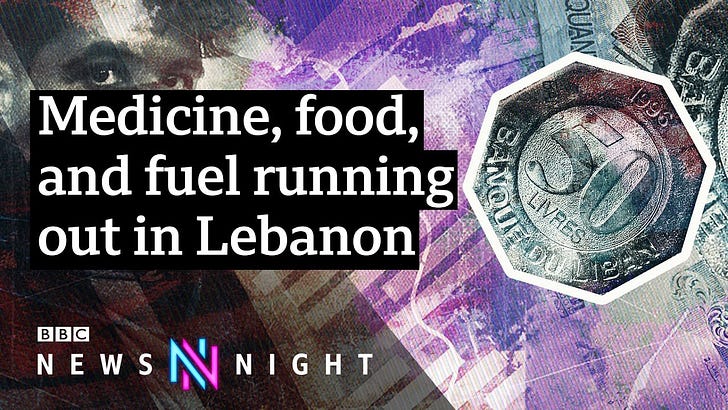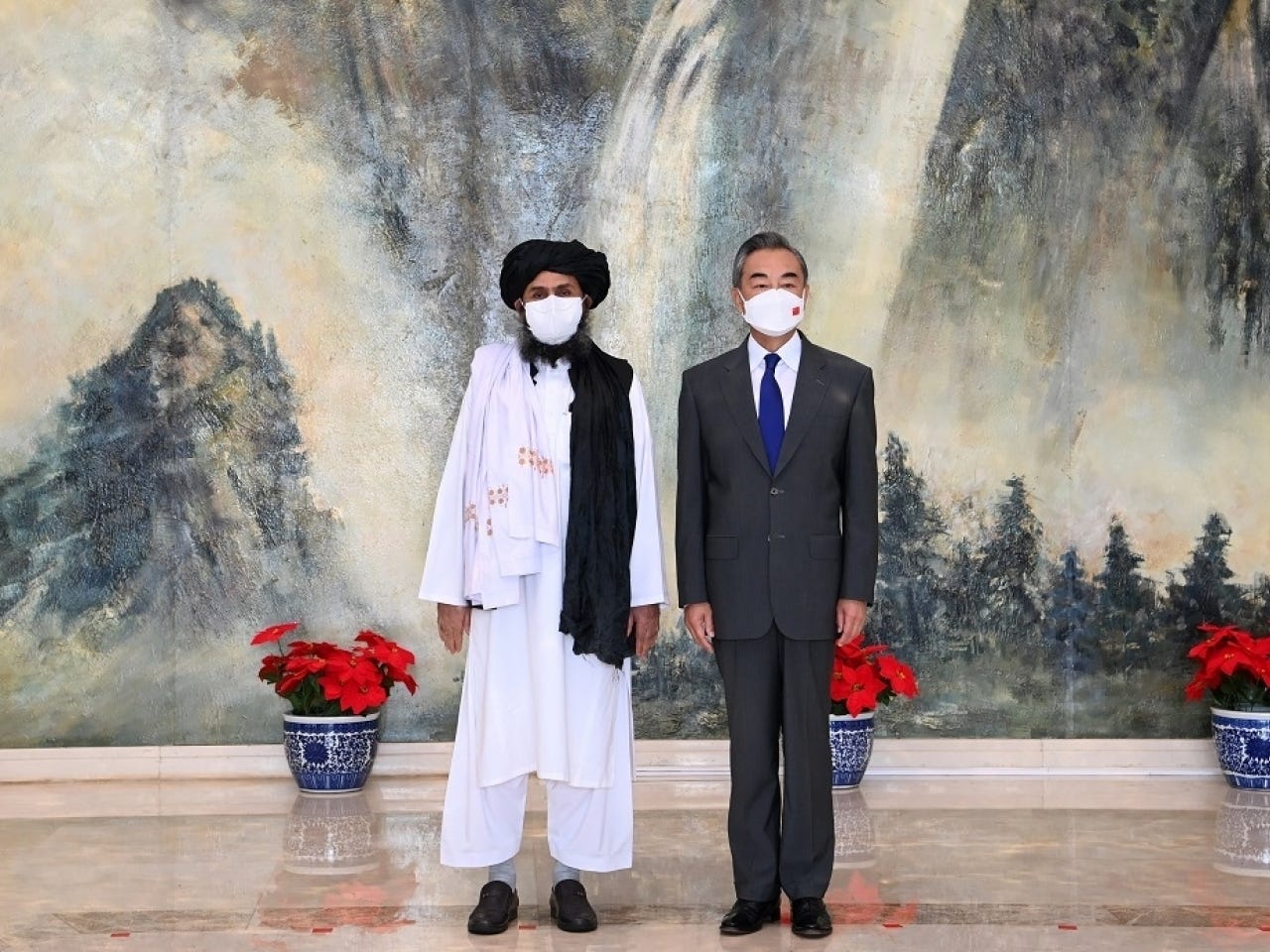Goodbye July, hello August! 👋
Welcome to the first monthly edition of Deep Dive. Thanks for reading!
I’m now based in London and recently started an exciting senior producer role at DMA Media. Getting here from Hong Kong (via Dubai) meant navigating a complex web of international travel requirements. Let’s just say my nose and throat are glad to be done with PCR tests!
On to the news…
“YEAR FROM HELL”
Wednesday (4 August) marks the one-year anniversary of Beirut’s port explosion. Unfortunately, that deadly event was a grim harbinger of things to come.
Back in March, I wrote about Lebanon’s instability and economic crisis. In the months since, the Mediterranean country has slipped further into chaos. The value of the Lebanese pound continues to tumble, pushing hundreds into poverty. Medicine, fuel and imported food items are in short supply while power blackouts are the norm.
On 15 July, on-again, off-again prime minister Saad Hariri quit after failing to form a government. Lebanon’s parliament has now nominated a billionaire tycoon, Najib Miqati, to step in and organise a cabinet that would introduce essential reforms.
The problem is Lebanon’s political elite consists of feuding factions (generally along religious lines), and the unique power-sharing arrangement encourages nepotism and corruption. These establishment players often act in their own interest, leading to what the World Bank has called a “deliberate depression”.
This BBC Newsnight report reveals the desperation felt by the Lebanese public.
SITTING DOWN WITH THE TALIBAN
Realpolitik can make for strange bedfellows. Despite its sealed borders, China welcomed Taliban representatives in the coastal city of Tianjin on 28-29 July. A nine-member delegation met (presumably without undergoing the mandatory 14-day quarantine) the CCP’s chief diplomat, Wang Yi, for talks.
With the US set to complete its military withdrawal from Afghanistan by 31 August, the country’s neighbours are calculating the odds of a Taliban victory. The group is already capturing swathes of territory, notably in rural areas.
So how does China factor in? According to analysts, Beijing has two key objectives where Afghanistan is concerned:
It wants to ensure that Uighur militants do not receive support from the Taliban
China has commercial investments in mineral-rich Afghanistan. Plus, the country sits on important trade routes in Central Asia, which would benefit the Belt & Road Initiative.
Speaking to the Taliban - and the government in Kabul - fits the CCP’s policy of ‘non-interference in internal affairs’. In fact, an op-ed in state media outlet the Global Times said: “We should not create enemies for ourselves at this crunch time. In particular, we should not easily reject the goodwill from the Taliban, which is of great significance to our exerting influence in Afghanistan and maintaining stability in Xinjiang.”
As for Washington’s reaction, the Biden administration reckons Beijing’s involvement in Afghanistan could be “a positive thing” if China was looking towards a “peaceful resolution of the conflict”. Those comments were made by US Secretary of State Antony Blinken.
AN AVENGER SEEKS (FINANCIAL) JUSTICE?
As the streaming revolution gains momentum, some of Hollywood’s top stars are studying the numbers and assessing whether video on demand (VOD) is good for their bank accounts.
If you ask Scarlett Johansson, the answer is no! The Marvel franchise veteran has decided to sue Disney over its release strategy for Black Widow. Why? Instead of debuting in cinemas exclusively, the entertainment giant simultaneously launched the film on Disney+ (for an additional rental fee).
Other studios have done the same during the pandemic, including Warner Bros. with Wonder Woman 1984. But Johansson claims Disney violated her contract by offering a streaming alternative, losing her millions in compensation. Worth noting: although Black Widow did relatively well at cinemas, the receipts paled in comparison to pre-2020 grosses.
For many actors, tying final salaries to box office performance is an enticing option. Superhero movies, in particular, can rack up US$300+ million in ticket sales in North America over the opening weekend. However, Covid-19 has fundamentally changed the game and forced film executives to rejig plans. The question is: should studios renegotiate the terms and conditions with their talent?
Disney is standing firm - it criticised Johansson’s “callous disregard” for the global health emergency. Naturally, Johansson’s side was unimpressed with the smear campaign.
Johansson’s peers are certainly paying close attention. Emma Stone is reportedly considering a lawsuit against the House of Mouse over the hybrid release of Cruella.
Please stay tuned for the next update at the end of August. Take care, Sara x






